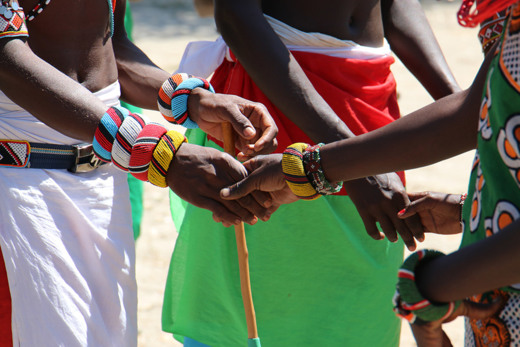A World Without Barriers – The role of translation and interpreting in localising Integrity’s work
Central to Integrity’s work is our deep contextual understanding and our ability to mobilise local networks to work on some of the world’s toughest problems. Enabling people to speak in their own words, creating an environment free from the potential barriers of cross-language communication and addressing power imbalances exacerbated by language are often critical to a programme’s success. Here, Integrity’s Senior Communications Manager and professional translator Zosia Demkowicz outlines the value translators (focusing on written content) and interpreters (dealing with the spoken word) can bring.
There are more than 7000 spoken languages in the world. As an international organisation working in more than 50 countries, Integrity is experienced at operating in vibrant linguistic communities. From Arabic to Mandarin, Swahili to Turkish, Integrity has experience delivering multilingual debates and conducting interviews in a diverse range of languages.
We work with local staff and consultants who speak regional languages and dialects. By working in this way we bridge linguistic gaps between project teams and the local communities they aim to support. We recognise the need to ensure core messages and resources are accessible to intended audiences and work to ensure that all voices are able to be heard. Translators and interpreters can play a key role in the achievement of this objective.
Language is power
The language of the international development community is already peppered with jargon and weighed down with the words of power. In our efforts to better understand people’s needs and localise our projects, we work to harness language as a tool of connection to remove potential barriers to mutual trust and understanding.
Much has been written about development power imbalances and, in the complex contexts in which we often work, we are acutely aware of how this can affect our efficacy. When local community members and those implementing projects do not speak the same language – or are unable to draw on language professionals to bridge this linguistic gap – community members can be alienated and potentially unable to access key information. By removing language barriers, we are more likely to increase understanding, build trust in delivery teams and, crucially, enable people to become involved in the decision-making processes that underpin and inform projects.
Meeting the need and adding value
Multilingual communication is important, but translation is more than just an issue of language. A good translator will bring a nuanced understanding of the local culture, an awareness of what can be contained in the space between the words and knowledge of other factors that will come into play in a conversation between community members and project teams.
This contextual awareness is essential if we are to work collaboratively to tackle globally relevant challenges such as climate change, migration and health, and the need for linguistic bridges may start much earlier than community-facing initiatives and products. Scoping research, contracting and the joint exploration of potential opportunities for collaboration should include translation and interpreting services to ensure all voices are being heard.
How Integrity collaborates with language professionals
Integrity has worked with translators and interpreters in a growing number of languages, and we encourage teams to consider language requirements from the outset.
Many of Integrity’s projects use participatory methods to help us hear and include as many voices as possible within our work. For example, during impact evaluations and learning activities, project teams often identify which key stakeholders should be involved. The question may also arise as to whether those identified can meaningfully participate without the presence of an interpreter. Even where individuals do speak English – often alongside other second, third and fourth languages – they may feel more comfortable and better able to express themselves if speaking in their first language, ultimately resulting in a richer and more authentic contribution.
Translating project outputs can also help communities and individuals understand what project teams are doing and why, while also demonstrating an intention and willingness to include them as informed stakeholders in the process. This may include employing visual tools and language to support broader understanding, especially in areas of low literacy.
A good example of this was in a recent project where Integrity worked with a Mandarin interpreter to enable our research team to expand the scope of a study that we were leading beyond the English-speaking clients. This helped to provide a richer data set and more inclusive perspectives.
In another recent project, Integrity worked with professional translators alongside context experts and client-side counterparts to interpret social media text. Our data analytics team performed sentiment analysis, enabling the team to focus on understanding.
In the global and cross-border contexts in which Integrity operates, removing the challenges posed by multilingualism through the provision of translation and interpreting services will invariably enrich and benefit both our work’s impact and, crucially, the relationships we build with local staff and communities in the process.
